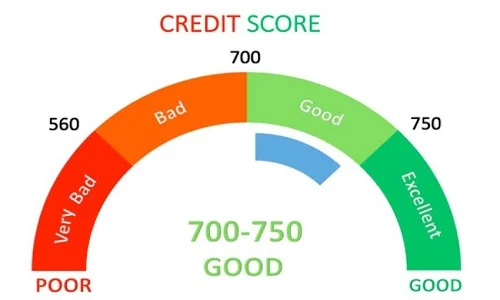
How to Build Good Credit
Many of you would unanimously agree that half of our adult lives are spent trying to manage our finances. Now, in the pursuit of keeping your finances in check, you may have heard how important it is to build and maintain your credit score. Your financial health relies on it. In fact, it gets all the more difficult to maintain it when you have credit cards, as one wrong move can damage the score.
However, you have no reason to be alarmed because we have curated a list of tips you would find useful when you are trying to build your credit using credit cards. Here’s a lowdown:
Lower the credit limit lower the trouble
When you are new to using credit cards, it can be quite tempting to opt for a high credit limit. However, this isn’t a good practice. You can obtain a credit card with a lower credit limit, like $750-$1,500.
This will allow you to stay in the right track and prevent your expenditures from getting out of control. It will also enable you to pay off the balance in full each month, which is the objective when you are trying to maintain a good credit score while using a credit card.
You can consult with your bank and request them not to automatically increase your credit limit. This will prevent you from getting into debt. If you pay off these lower amounts, managing your credit card transactions become a lot easier and it positively influences your credit score in the process.
Do you want to learn about the appropriate ways to use your credit card? Read these tips to use your credit card smartly.

Perceive your credit card to be your debit card
A word of caution about credit cards: You won’t see changes in your bank account balance when you make purchases. It’s only when you proceed to pay your credit card bill that the money is debited from your account. If you are not cautious, you can completely lose track of how much you are splurging.
In this case, it is always wise to stick to a budget, regardless of whether you have credit cards or not. That way you will always have a clear picture of how much you want to spend.
“Assume your credit card to be your debit card instead. This lets you spend only what you’ll be able to pay in full when you receive the bill,” suggests Gerald Wilson, an expert on accounting help. The more focused you are about limiting your expenditures, the more convenient it will be to avoid carrying a balance and paying high interest.
Fewer credit cards are always more
Repeat after me; I don’t need more than one credit card. If you opt for too many credit cards, it has an adverse impact on your credit report. Also, let’s face it; having one credit card is a lot more manageable. Now, you may be excited to get a store credit card (hello, discounts!) but that might not be a wise idea when you are trying to maintain a stellar credit score.
These types of cards come with a steep interest rate. These stores are aware that the majority of people don’t pay off the balance in full each month. This means they make a lot more in interest as compared to what they provide you in savings.

While it is obvious for you to jump at the opportunity of obtaining these store credit cards, you must restrict yourself for the love of your credit score. Rather, you should stick to a low-interest rate credit card with no annual fees and a low credit limit. If you can find a card that provides good rewards, like travel offers or cash back, it’s a win-win for you (as you get to save money in the long run).
Timely payments are key to a good credit score
Your credit score denotes how you manage your debts, i.e. borrowing money and repaying it. To have a great credit score, you need to maintain a squeaky-clean record of on-time debt payment.
Meeting regular expenditures on a credit card allows you to improve your credit score without slipping into debt (if you aren’t already making payments on a loan). You just have to pay your credit card bill in full each month, and the card issuer will inform the credit bureaus about your payments. When you pay in full, you won’t have to bother about paying interests.
Weigh down your options before investing
If you are a complete newbie in this area or have made mistakes in the past, you are not likely to receive the best offers out there. The best cards generally demand good or excellent credit.
In such cases, you can check the credit cards specifically provided for people with bad or fair credit. Now, the benefits and rewards of these cards aren’t as enticing as those offered by the high-end credit cards. However, they serve as a great starting point as you work your way up to qualify for better offers again.
If you believe it won’t be a big deal to apply for credit cards even if the possibility of approval is bleak, then think again. Every time you choose to apply for a new credit card, the issuer will look at your credit. These evaluations can knock points off your score. Also, multiple credit card applications within a short span of time can be damaging for your credit score. This is because such frequent applications can indicate that you have financial trouble.
Avoid freebies and offers with your credit card application
You can receive offers of free t-shirts, pizzas, and countless other gifts when you apply for a credit card. Sounds amazing, right? Well, sorry to burst your bubble but these offers and schemes don’t do any good to build credit.
You might be under the impression that applying for credit cards to receive something for free won’t hurt. But every time you open a credit card, your credit score can take a major hit. Having too many active credit cards will also bring down your credit score. Also, cancelled cards do show up on your credit report (if you think cancelling them will solve the problem). So, save yourself the trouble by declining any additional offers and freebies.
Parting thoughts,
Maintaining a credit score is as hard as adulting. It takes considerable time to reflect any significant difference in your credit score and usually requires splurging a large sum of money for your debt. However, with the ideas mentioned above, you can swipe your way to a great credit score. Even though there may not be an overnight shift in the score (it takes about 3 months to see any positive changes), but it will be worth the wait.





Be the first to comment